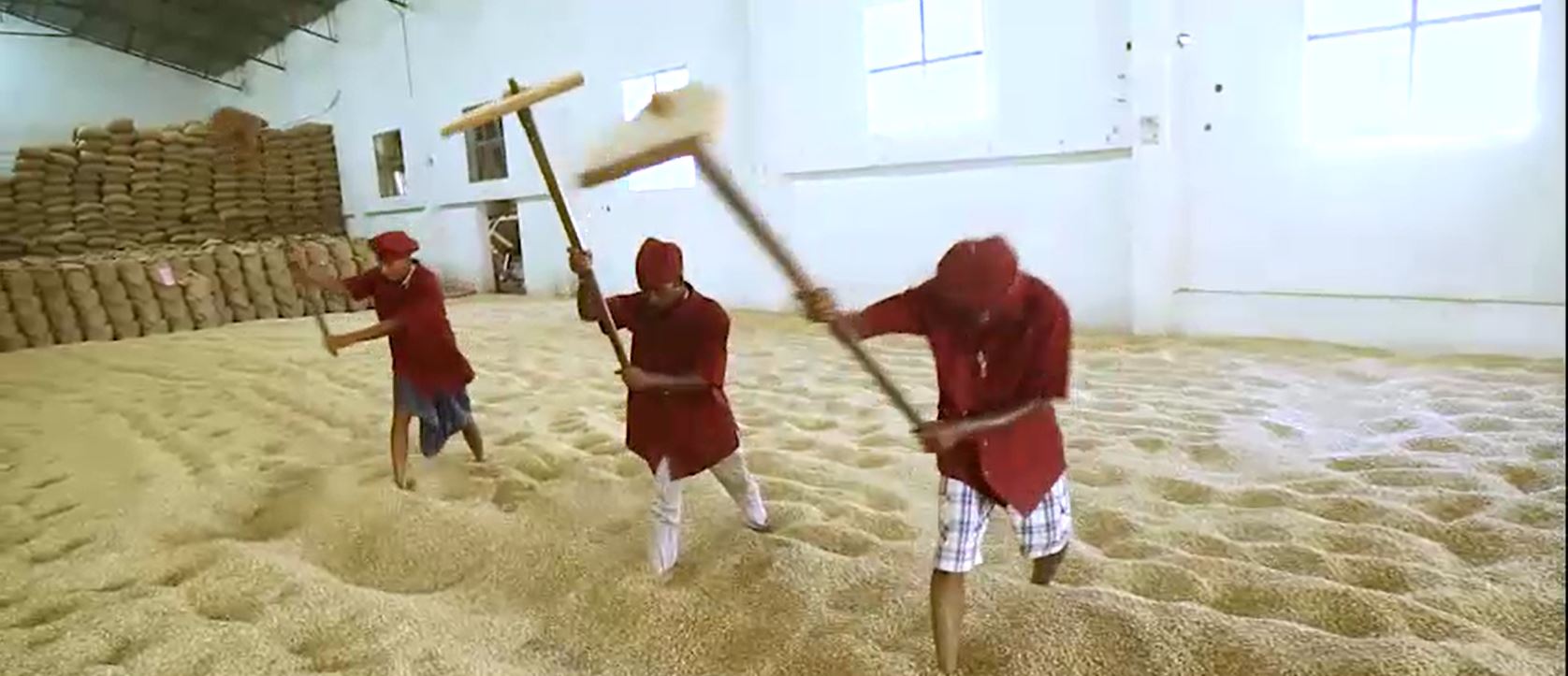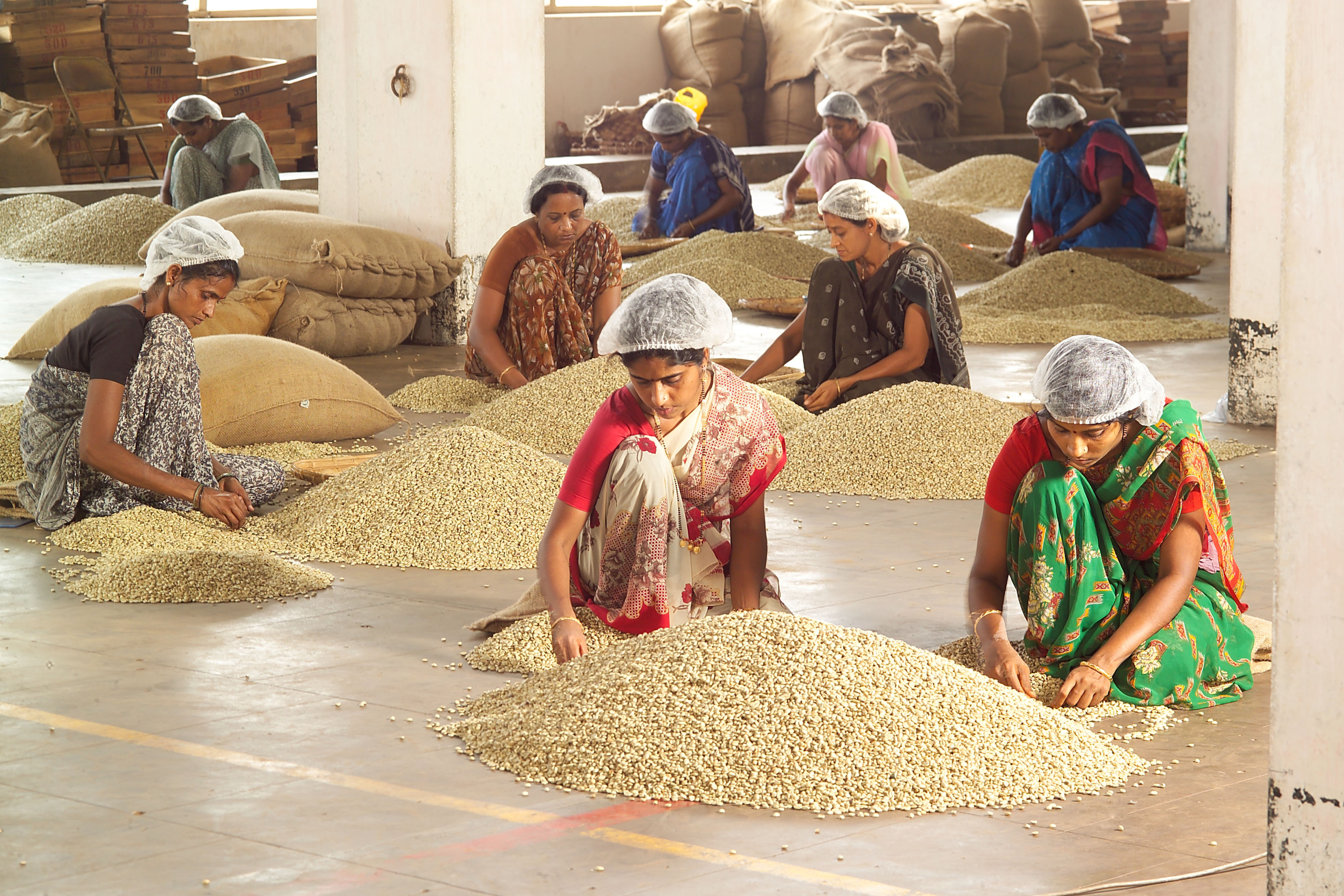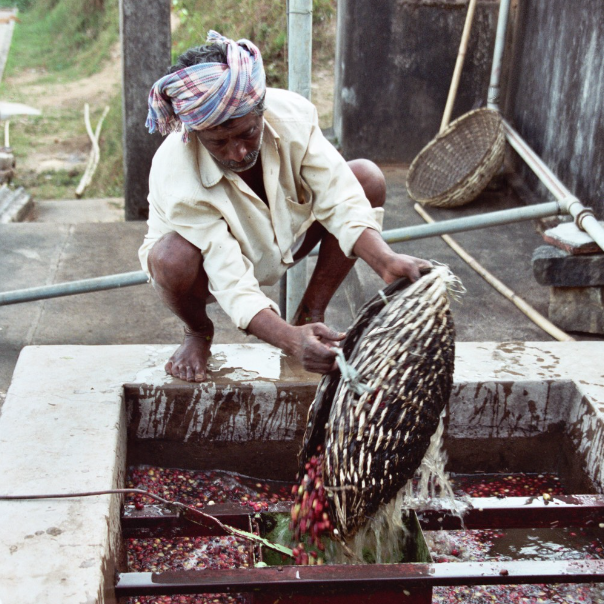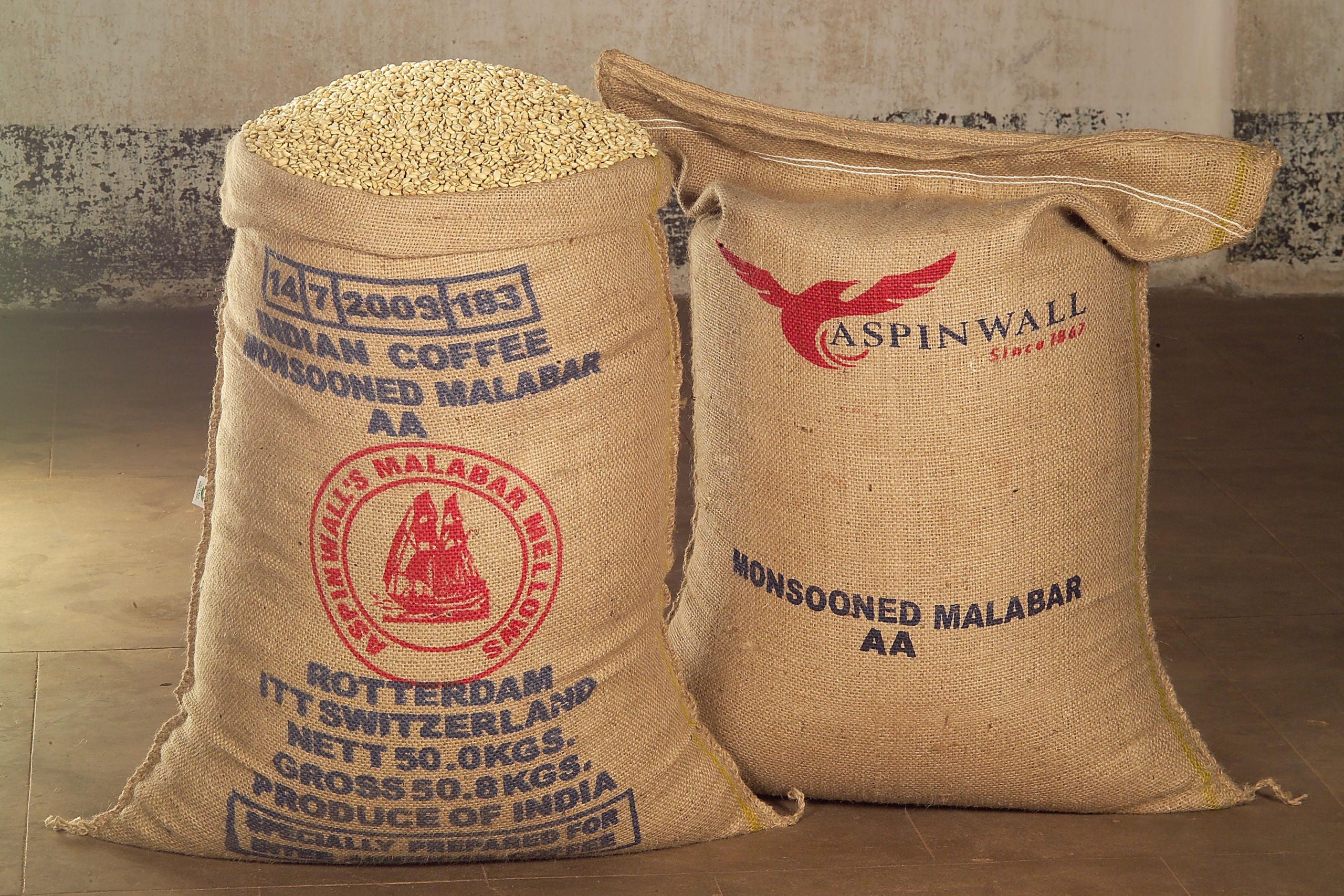In den Anfängen der Seefahrt brauchten Klipper mit Holzschiffen etwa sechs Monate, um Europa zu erreichen. Aufgrund der Klimaschwankungen veränderte der Kaffee seine ursprüngliche Bohnenform, Farbe, Größe und seinen Geschmack. Heutzutage nutzen indische Produzenten den Monsun, um eine Kaffeespezialität mit genau den gleichen Eigenschaften wie früher herzustellen – ohne die Verzögerungen. Unsere Monsun-Kaffees werden ausschließlich in Indien zubereitet und von dort importiert. Der traditionelle Monsun-Prozess wird an der Malabar-Küste, d. h. an der Westküste Indiens, insbesondere in Mangalore, durchgeführt. Die Region Malabar ist für ihre hervorragenden natürlichen Ressourcen bekannt. Die feuchte Monsun-Atmosphäre bewirkt quantitative und qualitative Veränderungen in den Kaffeebohnen, die für den einzigartigen milden Geschmack sorgen. Beim Dämpfprozess werden die Naturals in 10 bis 15 cm dicken Haufen in einem gut belüfteten Lagerhaus mit Ziegel- oder Betonboden den feuchten Monsunwinden ausgesetzt. Dieser Prozess wird an der Westküste Indiens durchgeführt, wobei die Winde aus dem Arabischen Meer während der Südwestmonsunmonate Juni bis September genutzt werden.




